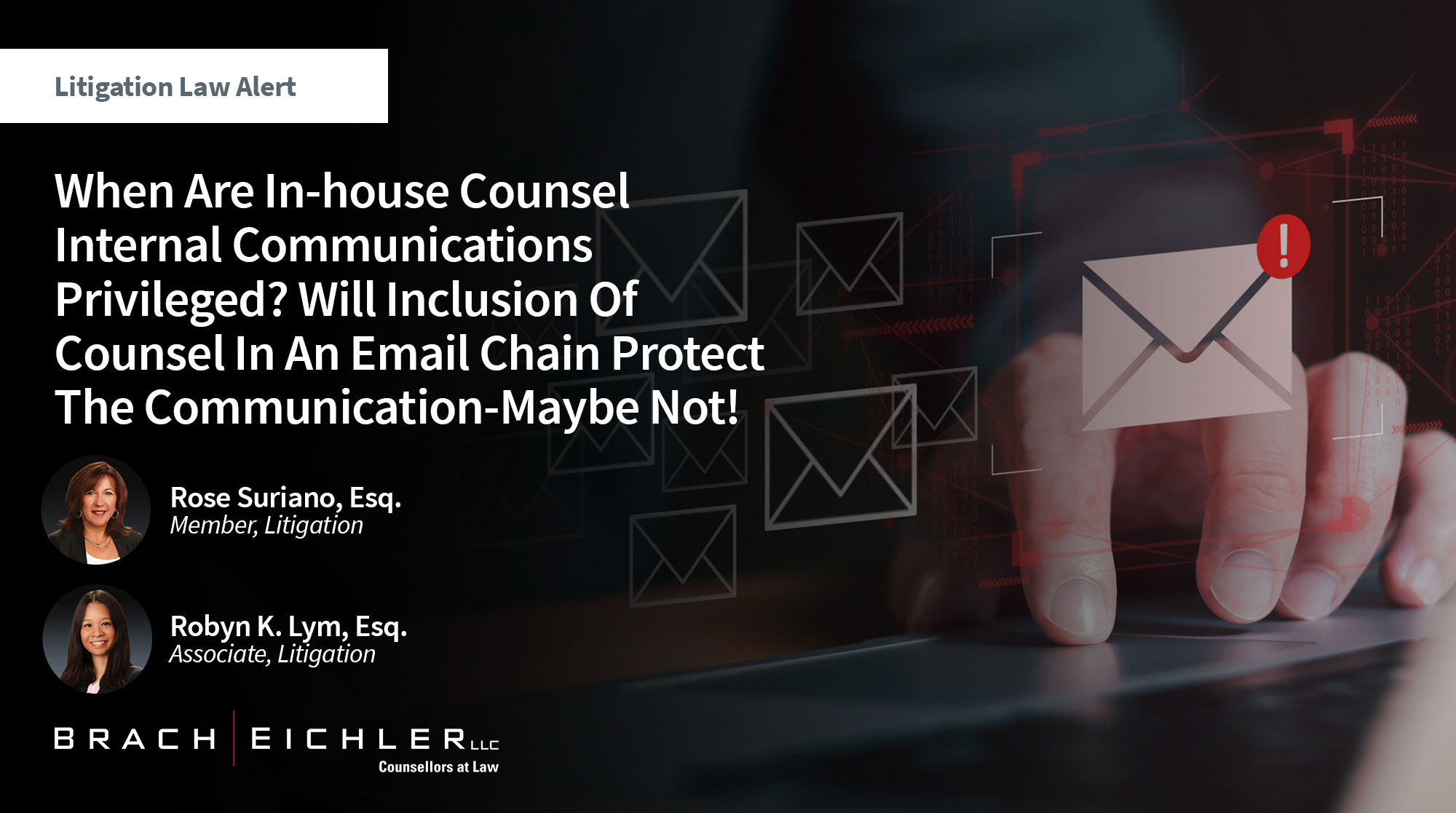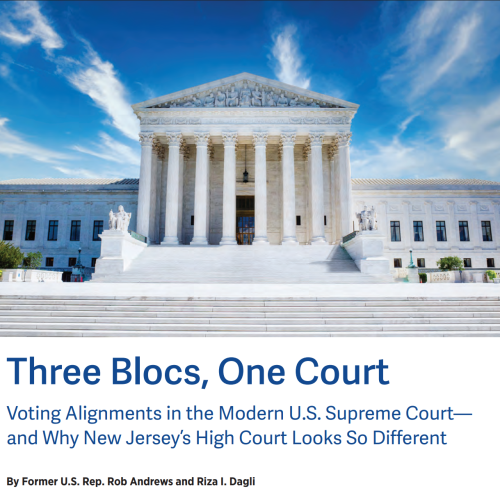When Are In-house Counsel Internal Communications Privileged? Will Inclusion Of Counsel In An Email Chain Protect The Communication-Maybe Not!

6/25/2025
So you think that including your general counsel or assistant in-house counsel in your email communications will protect the communication? Maybe not. Internal communications are not always shielded by privilege simply because your in-house counsel is copied on the email communication.
When is an internal communication privileged?
An internal communication is privileged if it is a communication, made between the attorney and client, in confidence, for the purpose of obtaining or providing legal advice. When evaluating privilege, you must first consider the purpose of the communication. For example, when a general counsel requests documents or gathers facts internally to assess a litigation, or sends communications regarding legal strategy, such communications are privileged and must remain confidential. Keeping in-house counsel on the email chain will be critical to protecting that communication. Similarly, when you are seeking legal advice regarding a company practice or policy, or how it may impact an employee, such communications are also subject to privilege.
What about work product and internal summaries if litigation is expected or anticipated? Documents and communications that a party or party’s representative prepares in anticipation of litigation are protected work product. But is the document or communication prepared or made in anticipation of litigation? Whether a document is protected work product requires a fact-sensitive analysis as to whether litigation was anticipated or contemplated when the documents were prepared, whether there is a substantial need for the documents in discovery, and whether the requesting party cannot obtain the materials through other means without suffering undue hardship. The court may also conduct an evidentiary hearing to address these factors. Paladino v. Auletto Enterprises, Inc., 459 N.J. Super. 365, 376 (App. Div. 2019) (remanding for evidentiary hearing as to whether statements and photographs were work product).
When is an internal communication not protected?
An internal communication made in the ordinary course of business is not protected simply because an attorney is copied. For example, if general counsel is copied on an internal discussion regarding an operational or financial issue that does not require legal analysis, or does not seek legal advice, it is not privileged, as it is part of the ordinary course of the company’s business. It is also important not to include a third party to the email communication even where counsel is included. If an employee discloses the protected communications to a third party or a third party is present during communications with in-house counsel, there is a risk that the attorney-client privilege may be waived. If confidential or protected communications are widely disseminated within an organization, the privilege may be waived as well. If an employee has internal communications and later becomes adverse to the corporation, the communications could be discoverable.
Remember that waiver of attorney-client privilege may result in subject matter waiver. This requires the disclosure of other related privileged communications regarding the same subject matter.
How can a company protect an internal communication from disclosure?
To preserve attorney-client privilege, consider carefully the purpose of your email and who is copied. Consider implementing the following best practices:
- DO NOT “reply all” without knowing who is on the email chain and review the entire email chain;
- DO limit the distribution of privileged materials/communications to individuals who are necessary to advance the legal purpose of the communication;
- DO use privilege designations on emails, such as attorney-client privileged communication in the subject line; and
- DO NOT forward legal advice.
Limiting privileged communications, avoiding the widespread dissemination of confidential or protected information, and carefully considering the content of emails are all part of a company’s best practices for limiting the disclosure of privileged communications and documents and to prevent the waiver of attorney-client privilege, particularly in cases where litigation is pending or anticipated.
If you have any questions about this alert, please contact:
Rose Suriano, Esq., Member, Litigation Practice, rsuriano@bracheichler.com or 973-403-3129
Robyn K. Lym, Esq., Associate, Litigation Practice, rlym@bracheichler.com or 973-403-3124














